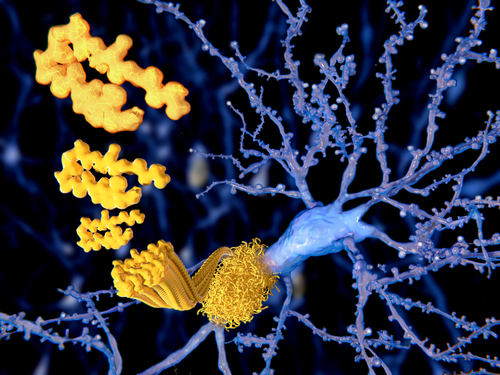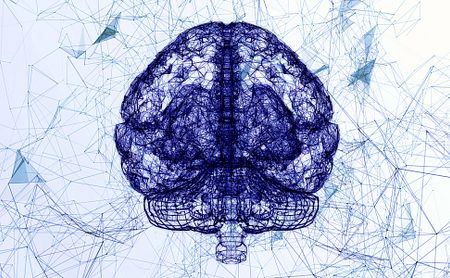Following a positive review of preliminary data, an independent board recommended the Phase 2b/3 study investigating oral Anavex 2-73 (blarcamesine) in people with early Alzheimer’s disease continue without modification. As specified in trial protocol, the Independent Data Safety Monitoring Board (DSMB) — used in ongoing clinical trials to protect patients and the integrity of study data — reviewed interim…
About Alzheimer’s Disease
Walking into a room and forgetting why you went into the room is normal. Walking into a room and forgetting what room you are in is not normal. Alzheimer’s disease is the most common form of dementia and affects one in ten people over the age of 65. Unfortunately, the exact cause of Alzheimer’s disease is not fully understood however leading scientific experts in the field attribute the illness to the irreversible and progressive generalized degeneration of the brain. Alzheimer’s disease goes well beyond the forgetfulness that may accompany aging, and typically first signs include difficulty remembering current information or performing new tasks. Ongoing hallmark symptoms include impaired memory function, difficulty performing everyday tasks, and neurobehavioral abnormalities. Currently, there is no known cure for Alzheimer’s disease, and multi-disciplinary treatment focuses on symptom management and limiting progression.
Conditions
Alzheimer’s News
GV1001 Treatment Shows Promise for Moderate to Severe Alzheimer’s
Six months of treatment with GemVax & KAEL’s investigational GV1001 provided benefits in the cognition and daily life activities of adults with moderate to severe Alzheimer’s disease, who take Aricept (donepezil) for dementia, according to data from a Phase 2 clinical trial. The results were published in an article, “Efficacy and safety of GV1001 in…
Effects of War, Dementia Animated in Short Film ‘Winter Memories’
Zahra Kababian had a special bond with her father, and even though he died suddenly 10 years ago, it’s the memories they shared that keeps him alive in her heart. It was those memories and his diagnosis of Alzheimer’s disease that inspired her animated short film, “Winter Memories,” which depicts an older woman with Alzheimer’s…
FDA Rejects Nuplazid to Treat Dementia-related Psychosis
The U.S. Food and Drug Administration (FDA) has rejected Acadia Pharmaceuticals’ request that Nuplazid (pimavanserin) be the first approved treatment of hallucinations and delusions associated with dementia-related psychosis. The decision comes less than nine months since the agency agreed to review the company’s supplemental new drug application, and a month after it announced “deficiencies” that had to be resolved…
Montana Residents May Order Free Children’s Storybook About Alzheimer’s
Montana residents who wish to help their children or young relatives better understand Alzheimer’s disease can now access a free storybook and reading guide. The reading guide, offered by the Montana State University (MSU) Extension program, includes questions to spark discussions about the storybooks and children’s activities. It also includes information about emotions children may…
Sargramostim, Immune System Activator, May Aid Cognition, Small Trial Finds
People with mild-to-moderate Alzheimer’s disease treated for three weeks with sargramostim, a medication that activates the immune system, showed improvements in cognition in a small clinical trial. These results support further investigation of sargramostim — and, more generally, the strategy of targeted immune activation — in treating Alzheimer’s, its researchers said. Findings were published in Alzheimer’s…
Donanemab Shows Potential for Early Alzheimer’s in Phase 2 Trial
Donanemab showed an ability to slow cognitive decline and the loss of daily life abilities in people at earlier stages of Alzheimer’s disease relative to those given a placebo in the Phase 2 TRAILBLAZER-ALZ trial, researchers report. A plaque-targeting therapy, donanemab also cleared substantial amounts of amyloid plaques in the brains of treated patients. But outcomes in secondary…
Sulbutamol, for Respiratory Ills, Seen to Improve Blood Flow in Brain
Use of salbutamol significantly improved blood flow — a measure of cerebral perfusion, or the steady flow of nutrients and oxygen via the blood to brain tissue — in healthy people in a Phase 1 trial, according to data from CuraSen Therapeutics, the investigative therapy’s developer. Poor cerebral perfusion is associated with cognitive decline and…
Neurostimulation Slows Decline in Mild-to-moderate Alzheimer’s, Trial Finds
Non-invasive neurostimulation given to people with mild-to-moderate Alzheimer’s disease significantly and safely slowed their rate of functional and cognitive decline, meeting key goals of the Phase 2 OVERTURE study, according to data presented at the 2021 AD/PD Conference. Its neurostimulation device, being referred to as a digital therapeutic, uses gamma frequency technology for neuromodulation. With this system, a…
Noninvasive Genetic Risk Test for Alzheimer’s Coming to EU, US
Cytox has launched a noninvasive genetic test, called genoSCORE-LAB, that can help to predict a person’s risk of developing Alzheimer’s disease and the cognitive decline it brings. Early detection of possible risk for this progressive, degenerative disease could encourage lifestyle changes that might slow Alzheimer’s onset and the rate of cognitive loss, the company reports in a…
FDA Finds ‘Deficiencies’ in Request for Nuplazid to Treat Dementia-Related Psychosis
The U.S. Food and Drug Administration (FDA) found “deficiencies” that preclude discussing further steps in the approval process for Nuplazid (pimavanserin) as a possible treatment of dementia-related psychosis, according to a press release from Acadia Pharmaceuticals, Nuplazid’s maker. Discussions on “labeling and post-marketing requirements/commitments” cannot take place before certain issues related to the therapy’s supplemental new drug…
Racial Discrimination Can Be Barrier in Healthcare, Surveys Find
Racial discrimination is a barrier to care in Alzheimer’s disease and dementia, according to two U.S. surveys conducted on behalf of the Alzheimer’s Association. This opinion was supported by more than one-third of Black Americans (36%), and nearly one-fifth of Asian Americans (19%) and Hispanic Americans (18%). Furthermore, the majority of non-white caregivers surveyed experienced…













